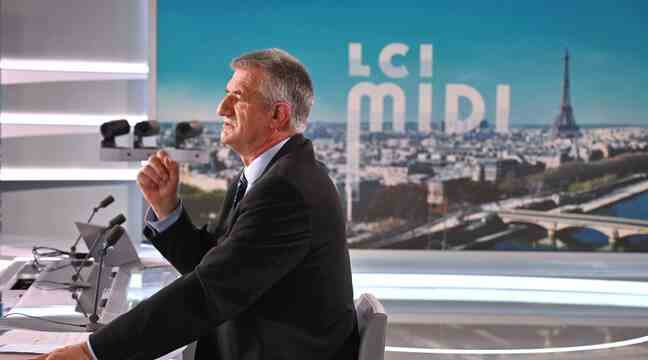“If I were to catch up with Zemmour, I would need 40 days of uninterrupted television. The projection of Jean Lassalle, deploring on Radio J his absence from the media is a classic of any presidential campaign: the small inaudible candidate facing the favorite of the polls invited on all the antennas. The originality here is that if David is indeed a small candidate without structure, Goliath is not a tenor of the PS or the right, but a purely media personality who has become a candidate. Inevitably, it was all the worse to give them the same speaking time…
The debate on equal speaking time comes up with each election and has already interfered with the current campaign with the cessation of Eric Zemmour’s program on CNews then the speeches of outgoing President Emmanuel Macron in December. But when do we start counting the speaking time of the candidates? Or what are the limits of this rule? 20 minutes takes stock for you.
Who counts the speaking time of the candidates, and how?
The Audiovisual and Digital Communication Regulatory Authority (Arcom, ex-CSA) is responsible for setting the rules and ensuring that they are respected. It controls the air time given to politicians on television and radio stations. Normally, media time is divided in two: a third for the executive, the rest for the political groups according to their importance in the hemicycles.
But the presidential campaign is a special time. Since January 1, radio and television stations must respect a “principle of fairness” in the speaking and air time devoted to candidates (which includes a journalist who describes the atmosphere of a meeting, for example). This fairness must respect the political weight of each, a vague concept which is based as much on the polls as on the number of seats in the Assembly of the candidate’s party. But it does not necessarily mean equality.
From when must candidates have equal speaking time?
From this Tuesday until March 27, the counters are reset for the 12 candidates. In addition to the “principle of equity”, the audiovisual media must offer candidates and their teams “equitable access to the antenna under comparable programming conditions”. Arcom has thus defined four time slots: from midnight to 6 am, from 6 am to 9 am, from 9 am to 6 pm and from 6 pm to midnight. Each time a media invites a candidate to one of these slots, it must offer it to all the other candidates.
“Thus, a channel will not be able to spend only the night of the meetings of a candidate with whom it has little affinity”, affirms the regulator, in a recommendation of October 2021. Arcom has already formal notice CNews and LCI for their programming of LFI’s speaking time, positioned above all at night. Nevertheless, freedom is left to the media for their programming within these slots, allowing a radio station to bring in a candidate at 10 a.m. and another at 1 p.m. in the same slot.
Finally, from March 28 and until the evening of April 8, the audiovisual media will this time apply strict equality of speaking time, calculated to within a few seconds.
Do these rules guarantee equal media coverage between candidates?
The freedom left within the time slots, for the current phase of the campaign, does not take into account the audience. Thus, an interview at 10 a.m. is less exposed than that of the meal break. Ditto for a slot at 6:15 a.m. rather than at 8 a.m. Television remains a very popular medium, but with often identified appointments. The presence of a candidate 20 hours of TF1 or France 2 will be viewed by millions of people, a particularly large audience.
But Arcom only monitors television channels and radio stations in the traditional sense of the term, and their extensions on the Internet. The press is not watched as closely and no framework exists for digital media, such as Raw, Blast’s YouTube channel, or broadcasts. Backseat by Jean Massiet on Twitch. And impossible to regulate the repercussion of the messages of the candidates on Twitter or Facebook. And in this little game, it is above all the most divisive candidates who win.

